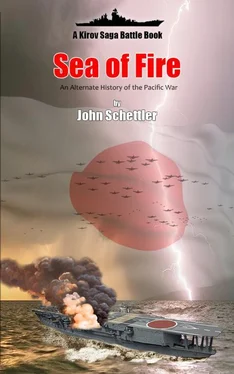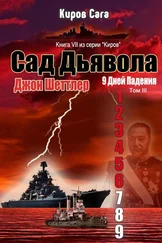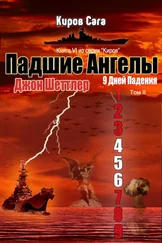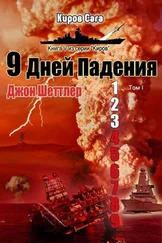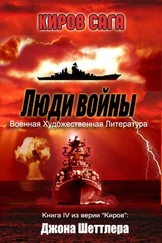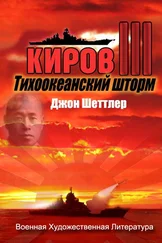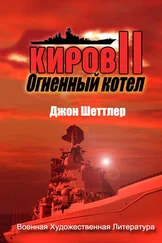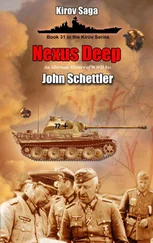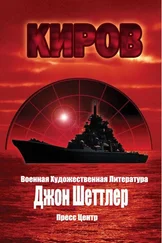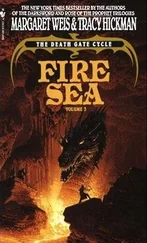“ Kyou ki no ookami. Sounds like one crazy wolf. Are you really going to ferry him up to Balikpapan?”
“I’d sooner fly him there, or some other medical facility, but that isn’t going to happen in this ashfall. For now, we’d best forget about him and sort our situation out. So far we’ve no signals traffic on regular channels at all, and no satellite uplinks.”
“Why don’t I have Ensign Shiota monitor regular radio bands?”
“Put her on it. We ought to hear some news, unless that volcano is washing out those bands as well. Those damn things can kick up their own weather.”
Of course, the Executive Officer’s suggestion only made things worse, for the only news they heard was rather dated. Just to cover every base, the Captain went to the ship’s library to look up 16th Army… and there was General Imamura, right there in black and white photographs, right down to the uniform the man in his sick bay was wearing! The details of the man’s career were all laid out, and he was indeed Commander of the 16th Army… but in 1942, and the troops and divisions he had mentioned, the operation also underway, were all a part of the invasion of Java in February, 1942.
The Captain sat on that for an hour, thinking Fukada must have been correct when he called the man a crazy wolf. But like any dangling thread, unattended task, or misplaced item, he could not rest until he had it in place. So he went back down to the sick bay to speak with his Chief Medical Officer, Lieutenant Hisakawa.
“Take a look at this photograph,” said Harada. “Then tell me that isn’t the same man in there asleep on your cot.”
“I’ll admit the resemblance,” said Hisakawa. “But taking it any further is plain stupid.” A former university professor in Japan, the man was not given to flights of fancy, and he had seen enough of the world’s misery in his profession to be the grim realist he was. During an accident three years earlier on fleet exercises, a helicopter had experienced engine failure on landing and came down very hard on the deck of the helicopter destroyer Izumo, where he had been stationed at the time. When they brought the injured flight crew in, he took one look at the co-pilot and immediately pronounced his wounds would be fatal. That kind of bedside manner was unusual for a healer by profession, but it was Hisakawa, who could be a hard, difficult and blunt man at times.
“Call me stupid then,” said the Captain. “But you know better than that, Doctor. The man isn’t a wax figure from a museum. Have you spoken with him at length? Believe me, the longer you do, the more you realize something is wrong.”
“Well considering that we just pulled him out of that ash laden sea, it doesn’t surprise me. He’s likely suffering post-traumatic stress. You can’t place any faith in what he might babble out under these circumstances. What he needs now is a good hospital in Singapore.”
That’s how it would go in the beginning, until the men dressed up like wax figures multiplied around them at an alarming rate, in ships out of museums, many which should have long ago been resting on the bottom of the sea. The officers and crewmen of Takami all knew of their ancestors in the navy, the ships they took to war, as much as any US sailor might know of Halsey and the USS Enterprise . It was a very slippery path now, and it led to only one place, a rabbit hole of madness, impossibly deep, and a wonderland of nightmare which would become a crucible for each and every man and woman aboard.
Way would lead on to way as Captain Harada began to walk that path. Along the way he would come to question his own sanity on more than one occasion, but reality has a very hard bite, particularly when it shows up as a surface action task force off the southern coast of Borneo. They had to come about 600 kilometers northeast of Krakatoa to get out from under that awful blackness, the light of the sun completely blotted out in all directions from the eruption. It had forced Mountbatten to withdraw to Perth, and also prompted Nagumo to take his carrier task force well up into the Makassar Strait off Balikpapan. That was where the Western Screening Force had fled when the eruption drove them deeper into the Java Sea, just as Takami was probing north for clearer skies.
Prevailing winds from the southwest had driven the worst of the ashfall up over Sumatra and into the lowermost portion of the South China Sea as it approached Singapore. They had radio intercepts of heavy ashfall in Singapore itself, adding more misery to the refugee crisis Percival was struggling with. Then they got the strangest report, of renewed fighting on the Island of Singapore, and news of Japanese troops breaking through to the city.
Without Montgomery’s 18th Division, and the tough Anzac troops, the steamy General Nishimura had taken advantage of the chaos and darkness to launch a surprise attack. The Indian Division posted astride the road from Kranji to the city could not hold, and Nishimura’s Imperial Guards broke through, following their remaining tanks to the city, supported by the 18th Division. Percival was unable to salvage the situation, and would now make his appointment with a Japanese prison camp, the event a sad echo of what should have happened a month earlier. Now Singapore was Nishimura’s problem to govern, and he would rule there with a very hard hand.
Bewildered by what they were hearing, consistent across all radio channels they could tune in, and being unable to reach any level of the command structure above his pay grade, Captain Harada was in a real quandary. His equipment was finally running, but his men did not reboot so readily or without some distress, nor did he. Rumors began to fly, with talk of calamity and war, with a heavy dose of confusion over the entire scene. When they heard news that the Makassar Strait and Celebes Sea were largely clear of ashfall and darkness, that became the best course he could set. The fact that it was on the sea road home to Japan also weighed in the Captain’s decision. Nothing made sense any longer, and he instinctively wanted to return to the certainty of navy life back home, but it soon brought him close to the precipitous edge of bedlam.
They saw the ships on radar this time, edging closer to have a look. Harada had it in his mind that they could be other ships in distress, for they seemed to be gathered listlessly in one place, steaming at a sedate 10 knots southeast of Balikpapan. The ash was finally clearing, though it still left a dull haze over the entire scene. They got close enough to use the optics, but that only made things worse. Fukada was soon convinced he was looking at a pair of old heavy cruisers from the IJN. He knew their silhouettes well, as he had built the models as a hobby for many years, and had several on the shelf of his cabin.
“By god,” he breathed. “Captain, that’s a Mogami Class cruiser out there or I’m a goat!”
And we all know where the story went for them soon after that little discovery. It was a progression, a madness that so many others on either side of the time line had gone through in these events, a creeping psychosis that hardened in their brains to a realization that they were no longer in the world they had been in when they left Singapore. There was surprise, astonishment, denial, even anger in the mix of emotions as they debated what they were seeing, what they were asking themselves to now believe.
Yet the world around them was going to be entirely too convincing, too consistent in its insanity—every radio transmission, every ship encountered, every other human being they would ever see there from that moment on, would all stand implacably on the side of the only impossible conclusion they could come to. It would not be something any man among them could dismiss, and along with that, there would not be a single vestige of the world they had come from to balance the scales on the other side, where all they had now was awful doubt, fear, uncertainty, and a quiet rage against the folly of what they were being forced to believe.
Читать дальше
